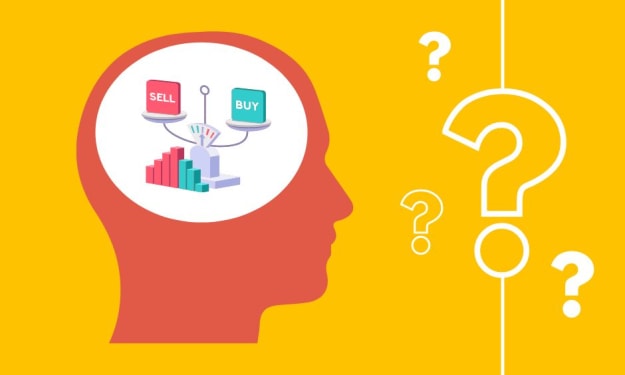How Do You Make A Trading Plan?
Things to consider while making a Trading Plan.

It would help if you had a trading plan, because it will help you make smart trading decisions and figure out what your ideal trade looks like. A good trading plan will keep you from making impulsive decisions based on your feelings.
Some of the benefits of having a trading plan are:
Easier trading: Trading is easier because all the planning has already been done, so you can trade based on the parameters you set up front.
More objective decisions: You already know when to take a profit and when to cut your losses. This means you can make decisions without letting your emotions get in the way.
Better trading discipline: If you stick to your plan and don't deviate from it, you might find out why some trades work and others don't.
More room for improvement: Defining how you keep records lets you learn from trading mistakes you've made in the past and improve your judgment.
Things to consider while making a Trading Plan.
A trader's trading plan lays out how they will find and make trades, including when they will trade protections, how big a position they will take, how they will manage positions while they are in them, what protections can be traded, and different rules for when to trade and when not to.
When making a good Best Forex Trading Plan, you just need to do this simple things:
1. Frame your inspiration:
A big part of making a trading plan is figuring out why you want to trade and how much time you are willing to spend on it. Think about why you want to become a trader, and then write down what you want to get out of it.
2. Decide how long you can focus on trading:
Figure out how long you can give your trading exercises your full attention. Could you ever trade while you were working, or do you have to do your trades first thing in the morning or late at night?
If you want to make a lot of exchanges every day, you will need more time. If you are betting on resources that will grow over a long time and plan to use stops, cutoff points, and warnings to manage your bet, you may not need to spend many hours a day on it. It's also important to spend enough time getting ready for trading, which includes getting educated, practicing your strategies, and analyzing the markets.
3. Write down what your goals:
Any trading goal shouldn't just be an explanation; it should be clear, measurable, doable, important, and have a deadline (SMART). For example, "I need to increase the total value of my portfolio by 15% in the next year." This goal is SMART because the numbers are clear, you can measure how well you're doing, it's possible, it has to do with trading, and it has a deadline.
4. Choose a risk and reward ratio:
Before you start trading, you should decide how much of a risk you are willing to take, both for each exchange and for your trading strategy as a whole. It's important to decide how much you can gamble. Prices on the market are always changing, and even the safest financial instruments carry some level of risk. Some new traders like to take on less risk to try things out, while others like to take on more risk in hopes of making bigger profits. This is completely up to you.
5. Summarize how much trading capital:
Check to see how much money you can afford to spend on trading. You should never bet more than you can afford to lose. There is a lot of risk in trading, and you could lose all of your trading capital (or more, on the off chance that you are an expert trader).
Before you start, do the math and make sure you can handle the cost of the worst possible loss on each trade. If you don't have enough money to start trading right now, you can practice on a demo account until you do.
6. Gather information about your market:
The market you want to trade in will affect the details of your trading plan. This is because, for example, a plan for trading forex will be different from a plan for trading stocks.
First, figure out how much you know about different resource classes and markets, and learn as much as you can about the one you might want to trade. Then, think about when the market opens and closes, how unpredictable it is, and how much you stand to lose or gain for every point the price goes up or down. If you're not happy with any of these things, you might want to choose a different market.
7. Start your trading journal:
A trading plan should be backed up by a trading journal for it to work. You should write down all of your trades in your trading journal. This will help you figure out what's working and what's not.
You need to explain not only the technical details, like the entry and exit points of the trade, but also why you made the choices you did and how you felt about them. If you break your plan, write down why you did it and what happened as a result. The better your journal is, the more details you put in it.





Comments
There are no comments for this story
Be the first to respond and start the conversation.